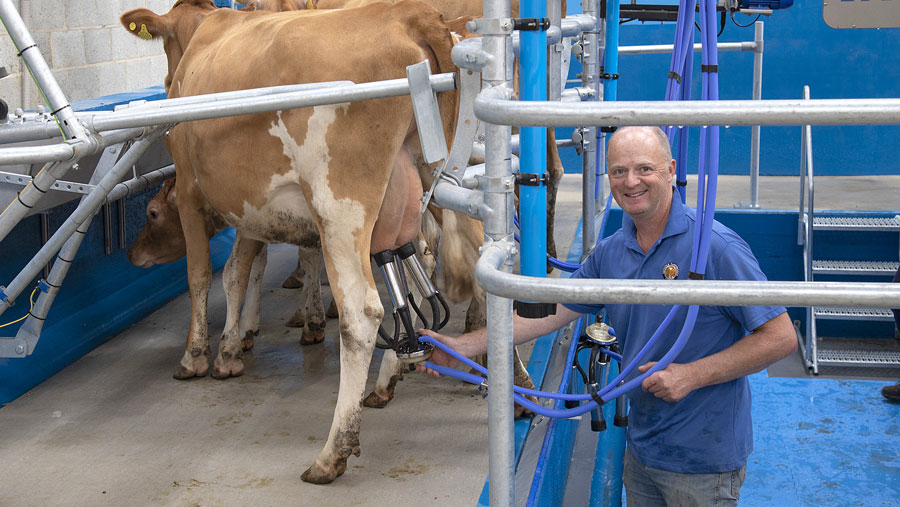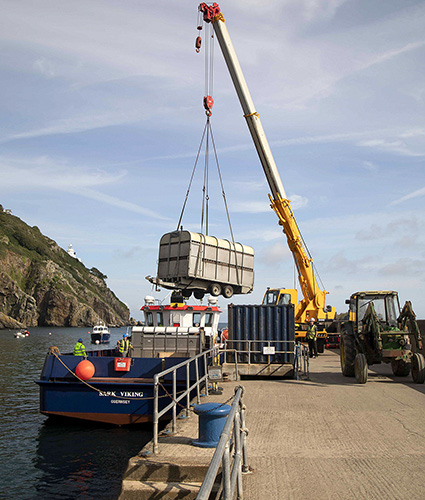First dairy cows to be milked on Sark in four years
 Jason Salisbury © Sue Daly
Jason Salisbury © Sue Daly The first dairy cows to be milked on the tiny island of Sark in the Channel Islands for four years have arrived, following the completion of a new dairy unit.
Just over two years ago, the island initiated a global hunt for a new dairy farmer, as the previous one had retired in 2017, meaning all dairy produce had to be imported.
Out of some 80 applicants, Jason Salisbury and his wife Katharine, who also own a pedigree Guernsey herd in Suffolk, were picked for the Sark challenge.
The couple and their two adult children have a wealth of experience as they already make award-winning cheeses from their Guernsey milk.
See also: So you want to… set up a milk vending machine?
‘Exciting times’
“These are exciting times for sure,” said Mr Salisbury. “The dairy, which is designed to hold 20 to 25 cows, has been completed and the first shipments of cows have landed.”
The new herd includes 14 Guernsey cows and a number of youngstock from a recently retired farmer on Guernsey.
“The cows and heifers have to be shipped over a few at a time, weather permitting,” said Mr Salisbury.
“We simply load them into a modified cattle trailer in Guernsey, which is then driven to the dock and loaded onto the boat by crane.”

© Sue Daly
Mr Salisbury, whose Suffolk farm is now being run by a manager, anticipates being able to sell the first milk in late August or early September, once a few milkings have gone through the system.
“We have installed a new DeLaval four-point milking parlour, which is actually half a parlour as it is only one side. The bulk tank is installed, the pasteuriser is ready, as is the vending machine.
“But before the milk can be sold, we have to give the entire dairy a deep clean and obtain the proper hygiene certificates.”
Challenges
Being on an island, there are a number of other challenges to face.
“My parlour is basically a vacuum pump and a pulsator – the reason being that I can’t just nip down to the local dealer for parts,” said Mr Salisbury.
“With this is mind, all the equipment has been kept simple and I carry 25% of parts in my store.”
Other challenges include the price of electricity – currently 58p per kW – and the high cost of importing feed, at around £600/t for an 18% ration.
“My aim is to eventually feed the cows a simple rolled barley diet in the parlour, which is produced on Sark, and we already have a good stock of winter forage,” he said.
